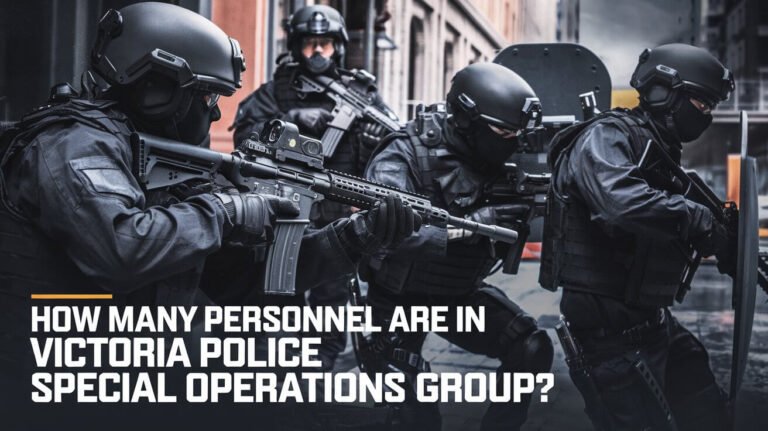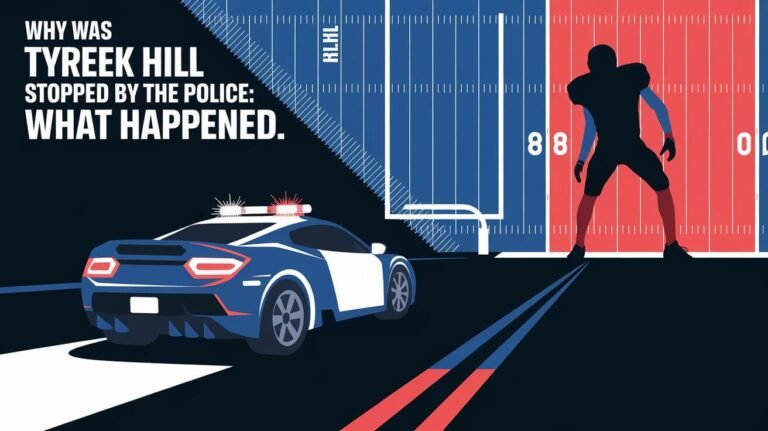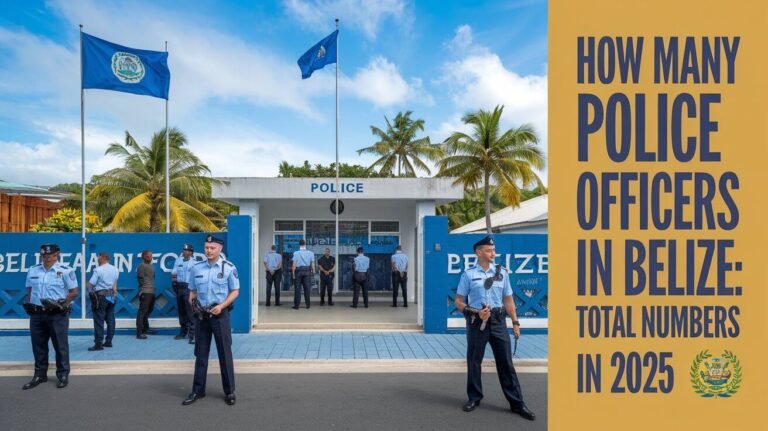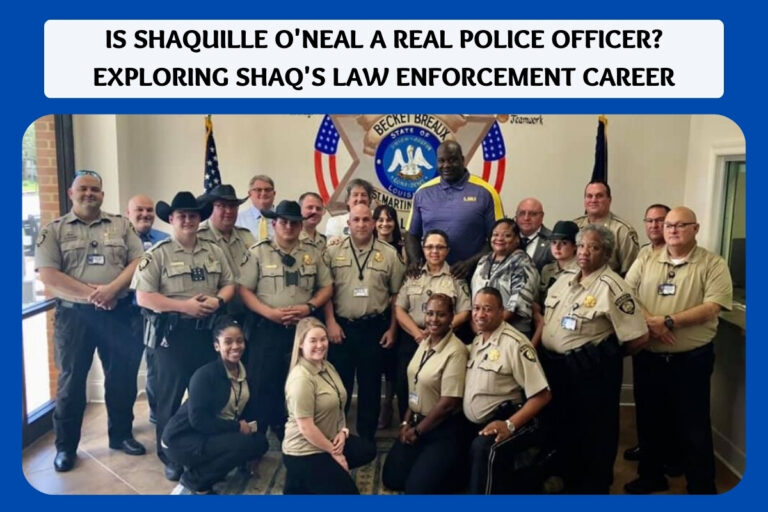Why Ask For Police Badge Number? Ensure Transparency
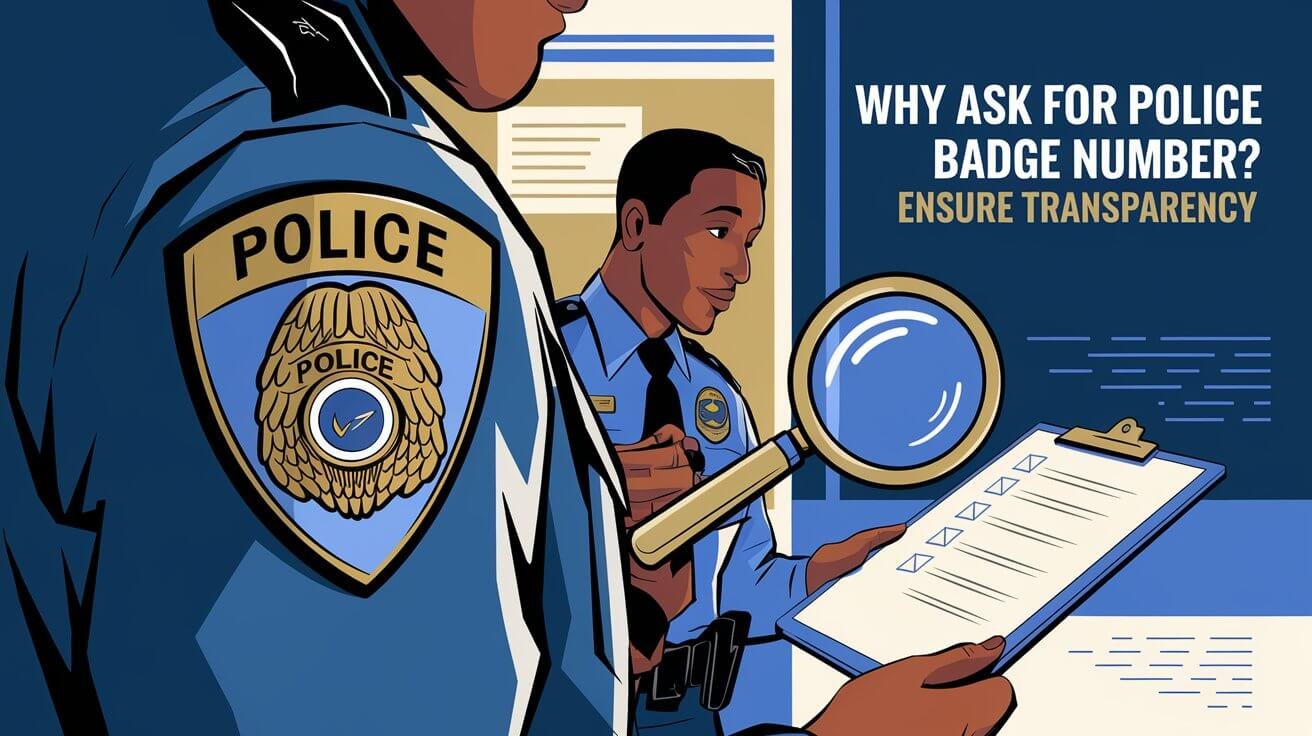
When you talk to police, knowing the officer’s badge number is key. It helps make sure law enforcement is open and fair. Attorney Ugo Lord says, even though there’s no law to share badge numbers, many places have rules that require it. This helps build trust between police and the public.
In California, police must give their name and badge number if they’re involved in a complaint. This shows how important badge numbers are for being open and fair. Asking for a badge number is a way for citizens to stand up for their rights. It helps keep the community and police working together well.
Role of Police Badge Numbers in Law Enforcement
Police badge numbers are key for identifying officers and keeping law enforcement accountable. They mean more than just a unique ID; they show an officer’s duty to enforce the law. In the U.S., the importance of badge numbers is a common theme, despite different policies in each area.
Recent events show how vital police ID is, like during protests. Sometimes, officers don’t wear badges or show their ID, making it hard for people to hold them accountable. This lack of openness can hurt trust between police and the public.
What Badge Numbers Mean
A badge number is a special ID for each officer. It helps track their actions and decisions. This info is used to look into complaints and make sure officers act right. Many places require officers to show their badge number when asked, which helps keep things open and fair.
How Badge Numbers Are Assigned
How badge numbers are given out varies by police department. Usually, an officer gets a unique number when they start working. This system makes it easy to know who an officer is and prevents mix-ups.
Badge Number Documentation Systems
Police use different systems to keep track of badge numbers. These systems help make sure officers are responsible for their actions. By keeping records up to date, police can build trust with their communities.
In some places, police must say who they are if asked. Police policies often ask officers to show their badge number when asked. Even though there’s no federal law about this, badge numbers are a big part of police work.
Legal Rights When Interacting With Police Officers
It’s key to know your rights when dealing with police. Attorney Ugo Lord says there’s no federal law that forces officers to share their identity. But, some places require them to do so if asked. Knowing your rights helps you handle police interactions better and ensures fairness.
Police rules change by state and area. For instance, in Alaska, you don’t have to give your name if stopped walking. But, drivers must show their license, registration, and insurance when pulled over. It’s important to know these rules to avoid confusion.
Some important rights to remember include: * The right to stay silent and not answer questions * The right to ask for the officer’s badge number or identifying information * The right to seek medical attention if injured * The right to make a phone call when arrested * The right to access legal representation Knowing these rights makes you more confident and ready when dealing with police.
Being aware of your rights and police policies makes interactions safer and more respectful. Always stay calm and assertive. And don’t hesitate to ask for help if you think your rights are being ignored.
| State | Requirement to Provide Name | Requirement to Provide License and Registration |
|---|---|---|
| Alaska | No | Yes |
| Other States | Varies | Varies |
Why Ask for Police Badge Number During Encounters
When you meet with police, keeping yourself safe and making sure they act right is key. Asking for their badge number helps a lot. It makes you feel safer and gives you a way to report any wrongdoings.
It’s also important for keeping records. If you’re stopped or searched, knowing the officer’s badge number proves it was real. It’s useful when you want to complain or get a lawyer. Plus, it shows you know your rights and are ready to use them.
Key Benefits of Asking for a Police Badge Number
- Enhanced personal protection through increased accountability
- Improved documentation of encounters with law enforcement
- Empowerment through knowledge of one’s rights and responsibilities
In short, asking for a police badge number is very important. It helps keep officers honest and protects you. Remember, knowing and using your rights is essential for a fair and safe world.
| Reason for Asking | Benefits |
|---|---|
| Personal Protection | Increased accountability, sense of security |
| Documentation Purposes | Verification of encounter, useful for complaints or legal representation |
| Officer Accountability | Ensures officers are held responsible for their actions |
Proper Methods to Request Badge Information
When you talk to police officers, knowing your rights is key. Attorney Ugo Lord says many places have rules for officers to share their badge number if asked. It’s important to be polite and respectful when asking for this information.
Here are some tips for requesting badge information:
- Stay calm and composed during the interaction
- Ask the officer for their badge number clearly and respectfully
- Take note of the badge number and the officer’s name, if provided
- Be aware of your surroundings and the officer’s behavior
Remember, asking for badge information is a basic right. Being informed can make you feel more confident when dealing with police. By following these tips and knowing your rights, you can have a safe and respectful interaction with law enforcement.
| State | Law Enforcement Policy |
|---|---|
| Arkansas | Requires individuals to identify themselves to law enforcement officers upon request |
| Maryland | Has specific laws regarding police interactions, including the right to remain silent |
Common Scenarios Where Badge Numbers Matter
Knowing a police badge number is key when dealing with law enforcement. It helps people identify the officer and ensures accountability. In the U.S., citizens can ask for an officer’s badge number, which is important during traffic stops, street interactions, and emergencies.
Traffic Stops
Traffic stops are a common place where badge numbers are important. People have the right to ask for the officer’s badge number and name. This info is useful if there’s a dispute or issue during the stop.
Emergency Situations
In emergencies like car accidents or medical issues, badge numbers are key for documentation. You might need the officer’s badge number when filing a report or getting medical help.
Here are some important tips for dealing with law enforcement:
- Know your rights and the officer’s badge number
- Be respectful and cooperative during interactions
- Document the interaction, including the officer’s badge number and name
Recording and Storing Officer Information
Knowing who the police officers are can make things clearer and help everyone trust each other more. This is what Attorney Ugo Lord says. It’s important to write down the officer’s badge number, name, and other important details when you meet them. You can use your phone to take a photo of their badge or use a note-taking app.
Keeping a written record of your interactions with police is also key. You should write down the officer’s badge number, when and where you met, and what happened. This way, you have a clear record of what happened. It can be helpful if there’s a disagreement or if you need to go to court.
Here are some important things to remember when recording and storing officer information:
- Use digital methods like photos or apps on your phone to record officer details.
- Keep a written record of your interactions with police, including badge numbers and a brief summary.
- Make sure to store your records safely, like in a password-protected app or a secure online service.
| Method | Description |
|---|---|
| Digital Documentation | Using a smartphone or other device to record officer information, such as taking a photo of the officer’s badge |
| Written Record Keeping | Writing down the officer’s badge number, the date and time of the interaction, and a brief description of what occurred |
Police Department Policies on Badge Numbers
Being informed about police department policies on badge numbers is crucial when interacting with officers. These rules change from place to place. But, most ask officers to show their badge number if asked. For example, the Grand Rapids Police Department tracks progress on accountability, community ties, and crime rates.
Police agencies have their own rules about sharing badge numbers. The Grand Rapids Police Department has a Records Unit for FOIA requests and crime reports. They also have units for community and detective work with their own phone numbers. These rules help keep police work open and honest.
Here are some important things to remember when dealing with police and their badge number policies:
- Badge numbers help identify officers and track their public interactions.
- Most police departments require officers to show their badge number when asked.
- Knowing these policies helps people deal with police better and supports openness and responsibility.
| Department | Policy | Contact Information |
|---|---|---|
| Grand Rapids Police Department | Requires officers to provide badge number upon request | 616-456-3301 or GRPDRecruiting@grcity.us |
| Internal Affairs Unit | Investigates complaints against officers | 616-456-3480 |
By knowing about police policies on badge numbers, people can handle police interactions better. This helps keep communities open and responsible.
Rights and Responsibilities During Police Encounters
It’s key to know your rights and the police’s duties when you meet them. You have the right to stay quiet, not let them search you, and to complain if they break the rules. Police must follow the law and treat everyone fairly.
When you meet a cop, it’s smart to stay calm and be polite. You can ask for their name and badge number. This info is helpful if you want to file a complaint later. Attorney Ugo Lord says some places require cops to share this info if asked.
Here are some important things to remember during a police stop:
- Stay silent and don’t talk about immigration or citizenship without a lawyer.
- Don’t sign anything without getting legal advice first.
- Give your driver’s license and other info when you’re legally stopped or arrested.
- Don’t fight a search, but tell the officer you don’t consent.
Understanding your rights and the duties of the police helps you navigate police stops more effectively. It also shows respect for the law. Police agencies must train their officers to follow the law and respect people’s rights.
| Citizen Rights | Police Officer Obligations |
|---|---|
| Right to remain silent | Uphold the law and respect individual rights |
| Refuse to consent to a search | Provide a reason for the stop or arrest |
| File a written complaint if rights have been violated | Respect the rights of individuals and provide a badge number when requested |
Safety Tips When Requesting Officer Information
When you talk to police officers, keeping yourself safe is key. Asking for their badge number is important for accountability and transparency. Here are some tips to help you do it safely:
Stay calm and polite when asking for officer information. Don’t get angry or aggressive, as it can make things worse. Instead, ask nicely for their badge number and name. Also, write down any other important details, like their car number or where you met.
Knowing your rights is also vital. In the U.S., you have the right to say no to a search. You should also keep quiet to avoid giving wrong information. You can also write down or record what happens, which can help in legal cases or complaints against the police.
Here are some key safety tips to remember:
- Stay calm and composed
- Be respectful and polite
- Avoid being confrontational or aggressive
- Take note of relevant details, such as the officer’s badge number and name
- Exercise your right to remain silent
- Document the encounter, if possible
Following these tips and knowing your rights, you can have a safe and respectful interaction with the police. Always put your safety first and seek help if you feel scared or threatened. Asking for their badge number is a big step towards making sure the police act fairly and openly.
| State | Law Enforcement Requirements |
|---|---|
| Ohio | Failure to provide name, address, and date of birth can lead to a misdemeanor charge |
| California | No statutory support for a duty to identify, but claims exist due to Hiibel and obstruction statute |
| Colorado | Peace officers can require individuals to provide their name and address when reasonably suspected of committing a crime |
Wrap-Up Thoughts
Understanding your rights and documenting your interactions with police is key. Attorney Ugo Lord says, “knowledge is power, and knowing your rights is essential when engaging with law enforcement.” By requesting the officer’s badge number and keeping a record, you can ensure your rights are protected.
The Fourth Amendment protects you from unreasonable searches and seizures. Your Miranda rights – like the right to remain silent and to an attorney – must be respected. If you think your rights have been violated and there’s no harm, document the incident well. Then, talk to a criminal defense lawyer to see your legal options. By actively protecting your rights, you can get fair treatment and make sure law enforcement is held accountable.
Common Queries
What is the purpose of a police officer’s badge number?
A police officer’s badge number is unique. It makes sure law enforcement is open and accountable. It helps people keep track of specific officers during interactions.
Do citizens have the right to ask for a police officer’s badge number?
Yes, citizens can legally ask for a police officer’s badge number. This right protects individual freedoms and keeps law enforcement in check.
Why is it important for citizens to ask for a police officer’s badge number?
Asking for a badge number is key for several reasons. It helps with documentation, ensures officer accountability, and offers personal safety. Knowing the badge number aids in keeping records and following up if needed.
How should citizens go about requesting a police officer’s badge number?
When asking for a badge number, be polite and respectful. Simply ask the officer for their badge number. If they refuse, remind them of your right to this information.
In what types of situations is a police officer’s badge number particular important?
Badge numbers are vital in many situations. This includes traffic stops, street interactions, and emergencies. Knowing the badge number helps document the encounter and ensures accountability.
What are the best practices for recording and storing police officer information?
Recording police interactions, including badge numbers, is essential. Use both digital and written methods for documentation. Accurate records protect rights and serve as evidence if needed.
How do police department policies vary when it comes to badge number disclosure?
Police policies on badge number disclosure differ by jurisdiction. It’s vital for citizens to know the laws and regulations in their area.
What are the rights and responsibilities of citizens and police officers during encounters?
Citizens and police officers have rights and duties during interactions. Understanding these can lead to respectful and productive exchanges.
What safety precautions should citizens take when requesting officer information?
When asking for a badge number, stay calm and respectful. Follow proper protocols and avoid confrontations. Clearly stating your rights ensures a safe interaction.

